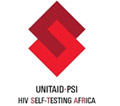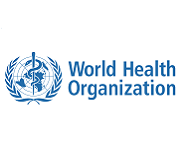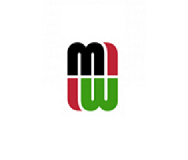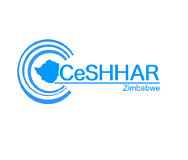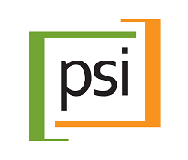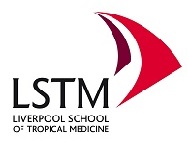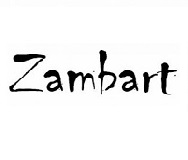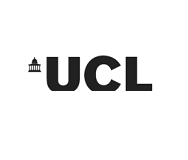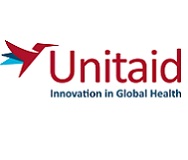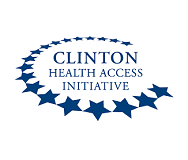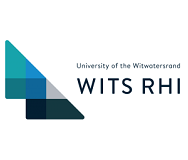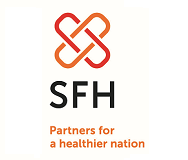HIV events
The following are key upcoming events relating to HIV self-testing:
6 – 10 March 2021; CROI 2021, Boston, USA
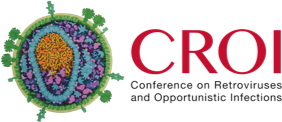 Abstract submissions and scholarship applications for the 28th Conference on Retroviruses and Opportunistic Infections (CROI) are now being accepted. The deadline for both is December 1, 2020. Late-breaker abstract submissions are due by February 4, 2021. In addition to research abstracts on HIV and related infections, CROI 2021 is accepting abstract submissions on SARS-CoV-2 and COVID-19.
Abstract submissions and scholarship applications for the 28th Conference on Retroviruses and Opportunistic Infections (CROI) are now being accepted. The deadline for both is December 1, 2020. Late-breaker abstract submissions are due by February 4, 2021. In addition to research abstracts on HIV and related infections, CROI 2021 is accepting abstract submissions on SARS-CoV-2 and COVID-19.
18 – 21 July 2021; IAS 2021, Berlin, Germany
Berlin to host 11th IAS Conference on HIV Science in 2021. IAS 2021 will take place on 18-21 July 2021. It is expected to convene 6,000 scientists, clinicians, public health experts and community leaders from over 140 countries.
IAS – the International AIDS Society – announces Professor Hendrik Streeck as the Local Scientific Chair of the 11th IAS Conference on HIV Science (IAS 2021). Professor Streeck is the Head of the Institute of Virology and Institute for HIV Research at the University Hospital Bonn in Germany.
More details about this event can be found at the IAS 2021 webpage.
6 – 11 December 2021: ICASA, Kampala, Uganda
With more than 10,000 delegates expected, this is an opportunity to reach so many key players in the scientific response to HIV/AIDS. Delegates will comprise ministers, decision-makers, researchers, scientists, clinicians, and other health care providers.
The International Conference on AIDS and Sexually Transmitted Infections in Africa (ICASA) is the biggest AIDS conference in Africa. It is a biennial event that alternates between Anglophone and Francophone African countries. The convening of the International Conference on AIDS and Sexually Transmitted Infections in Africa (ICASA 2021) in Kampala, Uganda in December 2021 represents a tremendous opportunity to highlight the diverse nature of the African region’s HIV epidemic and the unique response to it.
Find out more about the 21st Edition of ICASA (2021), which will be held in Uganda.
Past conferences including STAR events:
8 – 11 March 2020; CROI 2020, Boston, USA
 The 2020 Conference on Retroviruses and Opportunistic Infections (CROI) will feature more than 1000 abstracts sharing the latest data on preventing, managing, and potentially curing HIV infection.
The 2020 Conference on Retroviruses and Opportunistic Infections (CROI) will feature more than 1000 abstracts sharing the latest data on preventing, managing, and potentially curing HIV infection.
You can download the Abstract eBook, which includes abstract text as submitted by the authors prior to CROI. Also available to download is the Programme and Conference Information booklet.
6 – 10 July 2020: AIDS Conference, Virtual from san Frnacisco, USA
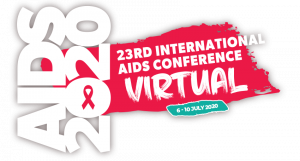 The first-ever virtual edition of the world’s largest conference on HIV began on 6 July with a focus on the links between HIV and the COVID-19 pandemic and recognition of global debates around racism. Delegates from 175 countries are attending the conference, originally set to take place in Oakland and San Francisco, US.
The first-ever virtual edition of the world’s largest conference on HIV began on 6 July with a focus on the links between HIV and the COVID-19 pandemic and recognition of global debates around racism. Delegates from 175 countries are attending the conference, originally set to take place in Oakland and San Francisco, US.
The STAR Initiative marked its presence at the 23rd AIDS conference 2020 with at nearly 20 presentations, posters, symposia and a virtual Exhibition Booth. The presentations took place on 7 July, under the title, Towards Sustainability and Scalability of HIV Self-Testing; Solutions for Middle-Income Countries, where WHO, Unitaid and partners hosted workshops, Q&A with special guests and community leaders.
21 – 24 July 2019: IAS Conference, Mexico City, Mexico
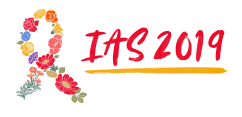 The 10th International IAS Society Conference on HIV Science (IAS 2019) was held in Mexico City in July 2019. For further information, please visit the IAS 2019 website.
The 10th International IAS Society Conference on HIV Science (IAS 2019) was held in Mexico City in July 2019. For further information, please visit the IAS 2019 website.
4 – 7 March 2019; CROI Conference, Seattle, USA
 The 2020 Conference on Retroviruses and Opportunistic Infections (CROI) will feature more than 1000 abstracts sharing the latest data on preventing, managing, and potentially curing HIV infection.
The 2020 Conference on Retroviruses and Opportunistic Infections (CROI) will feature more than 1000 abstracts sharing the latest data on preventing, managing, and potentially curing HIV infection.
The final Abstract eBook is now available for public download following the conference. Further information can be found on the CROI 2019 website.
23 – 27 July 2018: AIDS 2018, Amsterdam, The Netherlands
This will be the 22nd International AIDS Conference organised by the International AIDS Society, and is expected to welcome around 18,000 participants from around the world. The theme of AIDS 2018 is “Breaking Barriers, Building Bridges”, drawing attention to the need of rights-based approaches to more effectively reach key populations, including in Eastern Europe and Central Asia and the North-African/Middle Eastern regions where epidemics are growing.
The STAR Initiative will be hosting a satellite session on at AIDS 2018, on Monday 23rd July from 14:45 to 16:45. There will also be two booths (506 and 507) in the Global Networking Zone where WHO, Unitaid and partners will host workshops, Q&A with special guests and community leaders, games, demos and more, on “Building Bridges to HIV Testing” as detailed in their road map.
21 – 25 October 2018: HIVR4P 2018, Madrid, Spain
HIV Research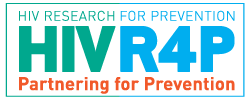 for Prevention (HIVR4P 2018) is the only global scientific conference focused exclusively on the field of biomedical HIV prevention research. HIVR4P supports cross-fertilization among research on HIV vaccines, microbicides, PrEP, treatment as prevention, and other biomedical prevention approaches, while also providing a venue to discuss the research findings, questions, and priorities specific to each. The HIVR4P scientific programme includes four days of plenary sessions by global leaders in HIV prevention research and policy; hundreds of new research studies presented in oral abstract and poster sessions; meet-the-expert lunches, symposia and roundtables; and pre-conference satellite sessions.
for Prevention (HIVR4P 2018) is the only global scientific conference focused exclusively on the field of biomedical HIV prevention research. HIVR4P supports cross-fertilization among research on HIV vaccines, microbicides, PrEP, treatment as prevention, and other biomedical prevention approaches, while also providing a venue to discuss the research findings, questions, and priorities specific to each. The HIVR4P scientific programme includes four days of plenary sessions by global leaders in HIV prevention research and policy; hundreds of new research studies presented in oral abstract and poster sessions; meet-the-expert lunches, symposia and roundtables; and pre-conference satellite sessions.
10 – 13 December 2018: ASLM 2018, Abuja, Nigeria
ASLM 2018 is the fourth biennial international conference of the African Society for Laboratory Medicine (ASLM). ASLM2018 aims to serve as a platform for the international laboratory medicine community to share best practices, acquire knowledge and debate innovative approaches for combatting global health threats. The theme this year is “Preventing and Controlling the Next Pandemic: The Role of the Laboratory”. Abstracts are being accepted from May 2018. See here for details.
4 – 9 December 2017: ICASA, Abidjan, Côte d’Ivoire
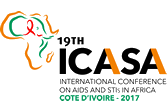 The conference theme “Africa: Ending AIDS – delivering differently” engageed the whole continent and all stakeholders in the post SDG framework.
The conference theme “Africa: Ending AIDS – delivering differently” engageed the whole continent and all stakeholders in the post SDG framework.
WHO and PSI hosted a satellite session, “Translating HIV Self-Testing Innovation Into National Policy and Scale-Up” on 7th December from 18:30 to 20:30. The purpose of this satellite was to:
- Share a WHO update on normative guidance, policy adoption, technical and operational updates, and the HIV self-testing market landscape.
- Review the latest evidence on HIV self-testing, based on STAR project research and other research from Africa.
- Share experiences from implementation of HIV self-testing distribution models under the STAR evaluation.
- Share country case studies from Malawi, Senegal, Zambia and Zimbabwe on how HIV self-testing evidence has been translated into policy and national HIV programming.
23 – 26 July 2017: IAS Conference, Paris, France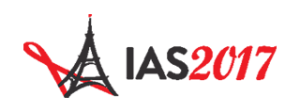
More than 5,000 scientists, clinicians, public health experts, community leaders and people living with HIV met to discuss the latest developments in HIV-related research at the largest open scientific conference on HIV/AIDS and related issues.
UNITAID, PSI, WHO and LSHTM hosted a satellite session to share key findings from phase 1 of the STAR project and plans for phase 2, on 23rd July from 5:00 to 7:00 pm.
For a summary of all HIV self-testing sessions and presentations see the IAS HIV Self-Testing Roadmap produced by STAR.

